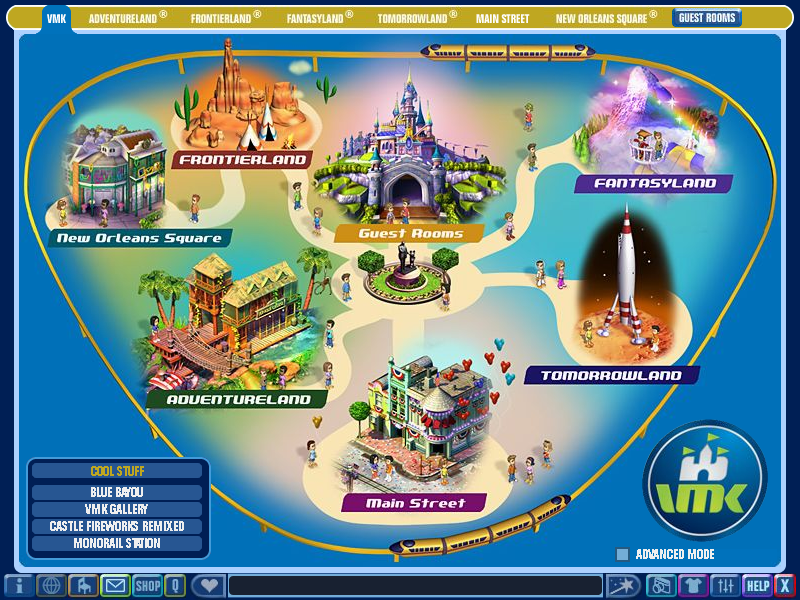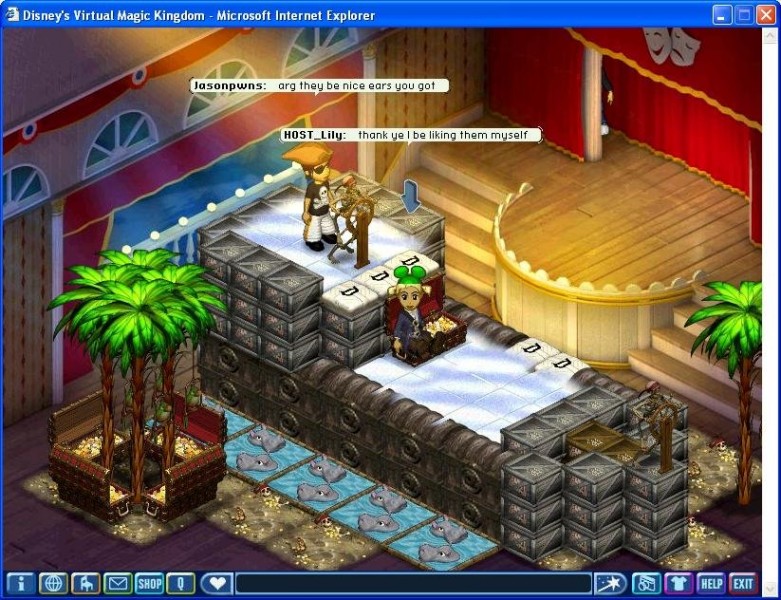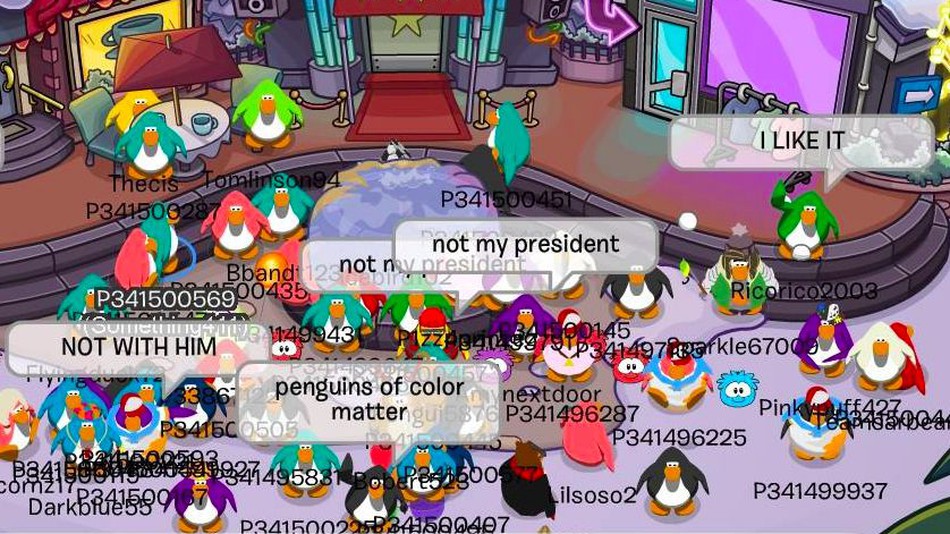It goes without saying that kids make up a massive portion of the people playing video games. In fact, people aged 18 and younger are the second largest age demographic that play video games; this demographic makes up about 28% of gamers in the United States. This is a pretty close second to the 29% of gamers aged 18-35.
Due to this undeniable fact, it should also go without saying that there should be more games of all types and genres directed specifically at kids and young people. Of course, “children’s games” makes up its own genre; but these games are typically extremely basic, infantilized even for the ages they are made for, one-player, educational titles. Kids deserve more complex games or games that allow them to interact with other kids.
MMOs and Young Gamers
It’s not that games like this do not already exist—they absolutely do, and kids are playing them. Massively multiplayer online games, or MMOs, are played by millions of people across the world daily. These are games that allow people to play in teams, communicate through text or voice chat, and often, make lifelong friends. Anyone is allowed to play them, and they are wildly popular with young people.
Most MMOs, however, tend to have a violent component. Often, people are either teaming up or going solo in an attempt to kill other players. Fortnite is an MMO that has exploded in popularity since its release in mid 2017. A battle royale game similar to the also popular PUBG, Fortnite requires players to either hide from or kill other players to be the last player standing. Once all of the other players in the match have died, the last remaining player wins. This violent premise (along with ambitious storytelling, unlockable features, bright, fun graphics and a free-to-play nature) have lead Fortnite to rank as the second most popular core PC game as of July 2018.
Violence in Gaming?
All of the top five core PC games currently have violent components that, for the most part, consist of being part of a team with the goal to kill the players on another team. For nearly 30 years there has been an ongoing debate about whether or not violent video games lead to violent behavior in real life. Particularly, a rise in gun violence has brought folks to blame video games for corrupting the youth and making them want to hurt other people.
It is true that kids seem to mainly be playing violent video games in which hurting or killing other players is necessary to win. But do video games lead to real-life violent behaviors? The studies conducted on this topic offer mixed results. Researchers focused on pediatric and adolescent health, however, tend to disagree with the assertion. In fact, there has recently been a massive shift in the dynamic of conversation surrounding video games. These days, more and more research is being done to study the use of video games as therapeutic tools for physical and mental disabilities as well as various mental illnesses.
The debate over whether or not video games lead to more aggressive behaviors is not the issue. The point is that kids deserve more choices in video games, and more spaces that are just for them. Since so many MMOs are focused around violence and winning and are based off of other games that are already wildly popular, these experiences tend to result in more serious gameplay by older gamers. Kids deserve spaces where they can have fun and interact with other kids.
Virtual Magic Kingdom
On July 3, 2005, Walt Disney Parks and Resorts Online published Virtual Magic Kingdom; a joint project between them and Sulake, the Finland-based game developer that developed Habbo Hotel. The game was free to play and aimed at kids aged 8 to 14. It featured customizable characters, personal “home” spaces, and text chat to interact with other players.
Virtual Magic Kingdom—or VMK, to its fans—was based off of the Disneyland theme park in California. The MMO was broken up into the same lands as the park, such as Tomorrowland, New Orleans Square, and Fantasyland, and featured the same buildings, areas, and changing music and sounds. While playing, the players—called “guests” in the game—could scout out Hidden Mickeys within the virtual Disneyland, much like the real one, or collect pins, just like the popular Disney-themed activity in real life. Beyond these things, players could also participate in in-game quests through which they could unlock codes to get new items for their characters or homes.
Virtual Magic Kingdom featured some specific characteristics that made it the perfect MMO experience for children. For example, the text chat was configured so that any personal information such as names, numbers, proper nouns, and swear words were not allowed; the words would be replaced with pound symbols and would flash red. The player was required to remove the sensitive or inappropriate information before being allowed to submit the text. In addition, the online game’s hours were monitored—it was open from 10:00 AM to 1:00 AM EST. These hours were meant to make the experience feel more like a proper theme park visit, but also made it so that the game had moderators present at all hours.

The VMK staff was present in all areas and rooms of the park, especially rooms in which special in-game “events” were taking place. Staff members were explicitly labeled in the game and were available for assistance at all times. Additionally, if a player behaved poorly or broke the rules, the staff members had the ability to remove the player from the game. Despite the surveillance and minor faults of the online experience, however, Virtual Magic Kingdom presented many opportunities for fun, adventure, puzzle-solving, and excitement for kids, as well as a way to make online friends safely.
Kids Deserve More Kid-Oriented MMOs
Many other online games have existed—risen and fallen in popularity—that are similar to Virtual Magic Kingdom. Some of the popular ones include Club Penguin, Webkinz, Neopets, and Toontown Online. These are games that allow young people to create characters, have their own spaces, participate in events, play games, and interact with other players, while none of them involve violent components (with the exception of Toontown Online, in which fights simply involved gags such as throwing pies). All of these games, however, have shut down or are about to shut down permanently.
Now, all of the most popular MMO games played by kids center around a similar basis; join a team and beat the other team. Typically, beating the other team requires the players to kill the players on the other team. There is little variance between these games, and it is becoming increasingly difficult to find MMOs that are more like Virtual Magic Kingdom in which kids can have fun and interact with other kids in a safe and stimulating environment.
The debate about video games leading to real life violence does not matter here; what does matter is that there are fewer and fewer games aimed specifically at kids and young people that are actually stimulating beyond simple point-and-click educational titles. Experiences like Virtual Magic Kingdom, Club Penguin, or Toontown Online allowed kids, specifically young kids, a place to go and play and make new friends. Kids are an important demographic in society and they often get overlooked in the creation and implementation of quality entertainment.
Overall, media outlets, game developers, and content creators of all types should give kids more credit. There are countless people, now older, who look back on their time spent playing Virtual Magic Kingdom and remember the fun they had and the friends they made. The world is more technology-oriented than ever before; it should be easier than ever to create great gaming experiences for young gamers.
Latest posts by Julia Brackett (see all)
- How the Evolution of Witches Affects Gaming - October 10, 2018
- Art as an Evocative Tool: A Talk with Lucah Developer melessthanthree - August 27, 2018
- Fat-Shaming in Villain Design - August 20, 2018

